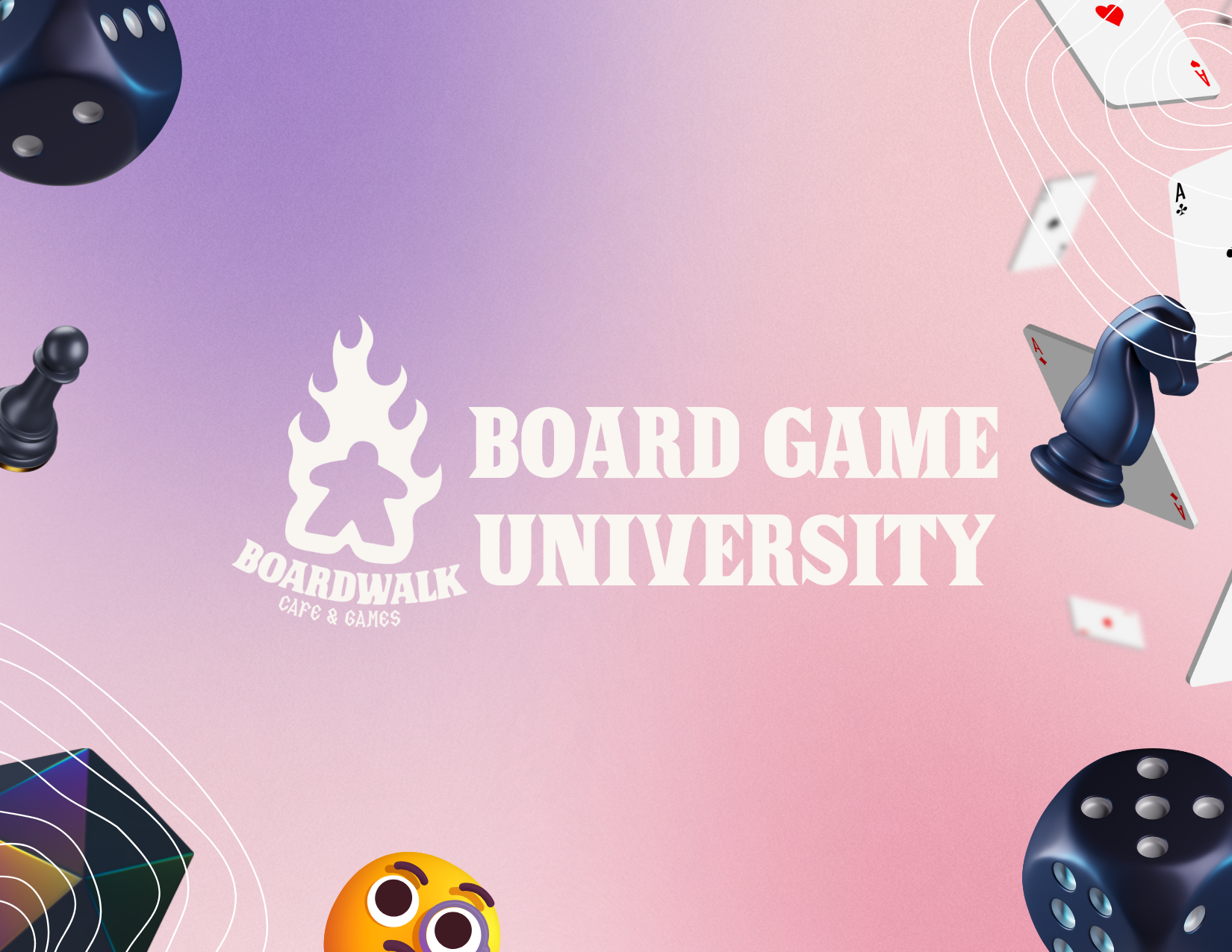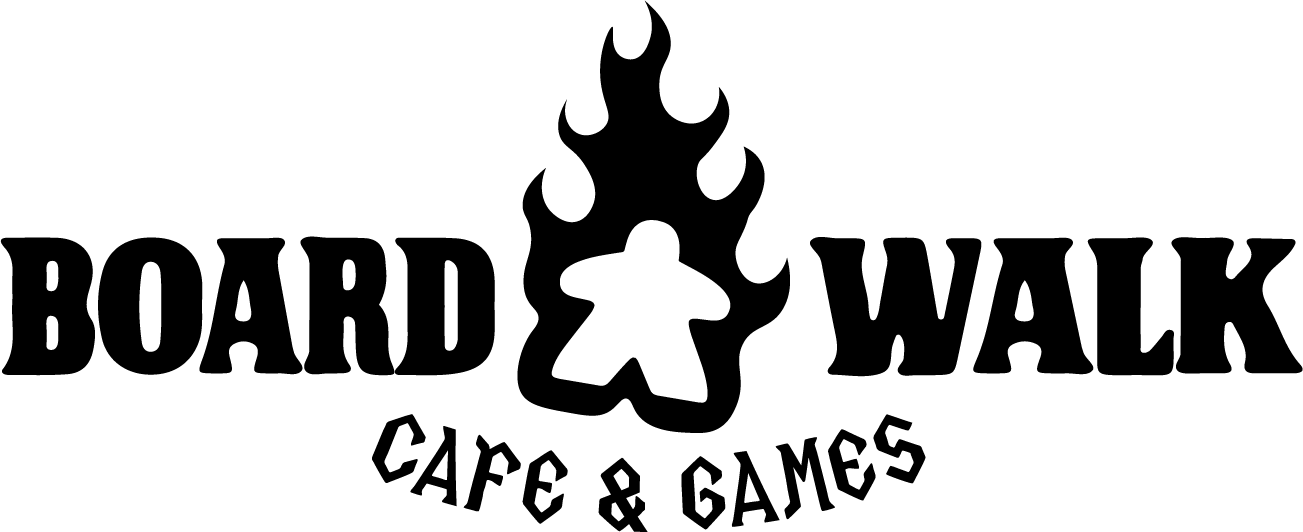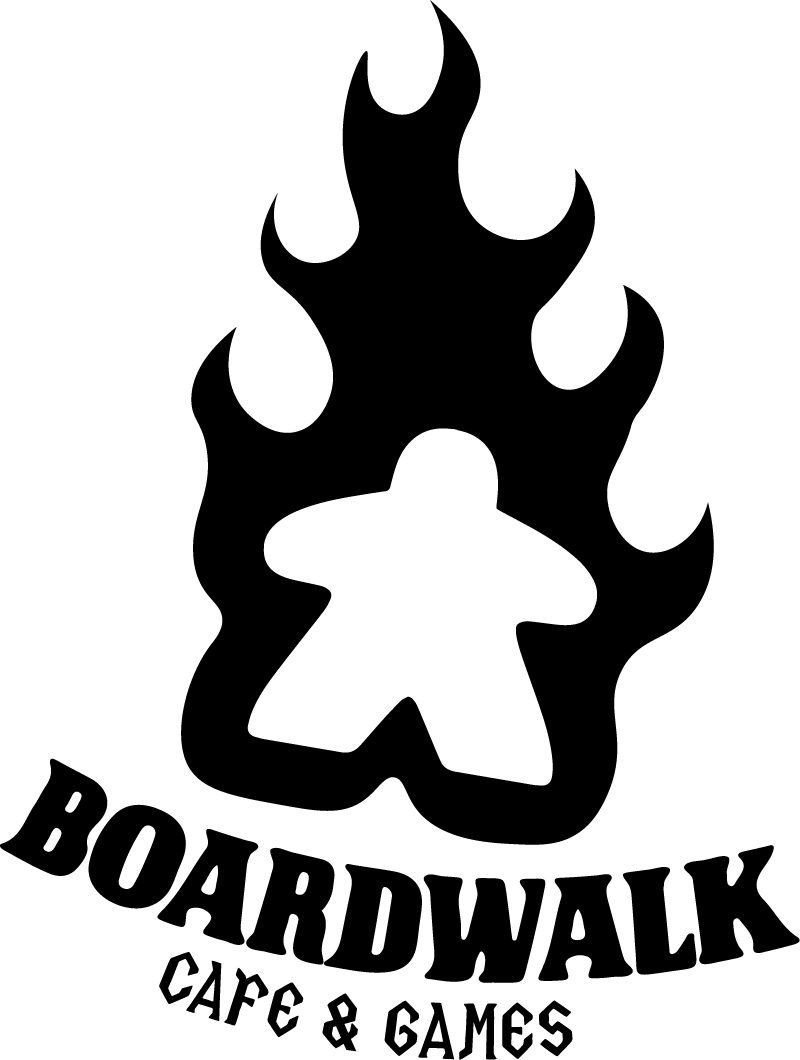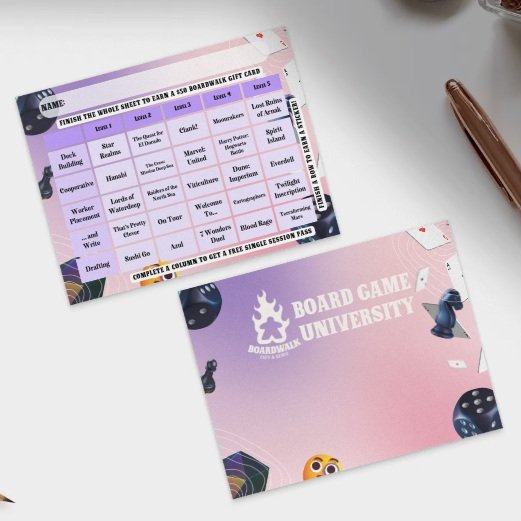
Take your tabletop gaming to the next level!
Welcome to Boardwalk Cafe and Games’ Board Game University, a brand new way for you to experience new tabletop games and take your gaming experiences to new heights!
How it works:
Pick up your Board Game University card during your next visit to Boardwalk Cafe and Games.
It is broken up into 5 rows representing 5 different tabletop game categories or mechanisms. Each column breaks those rows down into 5 levels of complexity allowing you to start with easier games in a category and move through to more challenging games.During any visit, if you play any games that are listed on your card ask a Boardwalk employee to stamp that game’s space,
If you complete a column, you receive a free single-session pass and if you complete a row, you earn that category’s completion sticker!
If you complete the entire card, you earn a $50 Boardwalk Gift Card!
The Categories
Below, you can take the opportunity to learn a little bit about each of the 5 categories we’ve chosen for this iteration of the Board Game University.
You’ll also find links to discover more information about each game we’ve selected for each category so you can do your homework before you come in to play them. Due to the complexity of many of the games we have selected, we may be unable to give much assistance as you learn to play these great titles.
-
Deck building games typically feature starting individual player decks that you modify and change throughout the game. You usually have opportunities to add new cards to your deck that suit different playstyles and may even be able to find ways to remove weaker cards from your deck to increase your chances of drawing your better cards.
Probably the most recognizable deck building game is Dominion.
-
Cooperative games replace the traditional player vs player of tabletop games with the chance for players to work together against the game itself. The scope of cooperative games is vast, ranging from straightforward card games to very complex strategy games with an intense depth of replayability.
Matt Leacock’s Pandemic has become the standard of modern cooperative games with it’s implementation of the Event Deck which has been copied and iterated over and over again.
-
Typical worker placement games can be simply explained as you place a worker to do or get a thing. While the most simple of worker placement games might require you to collect a certain number of things in order to earn points, these games can get incredibly complex with how you may be required to gain things, trade things, do things, upgrade things, and so on and so forth.
The most inventive of worker placement games introduce twists to how, when, and where you can place your workers.
Most recognizable for modern worker placement games would be titles such as Stone Age or Viticulture.
-
It all started with “Roll & Writes” where you roll some dice and write down some numbers. Yahtzee is the most classic of examples.
In recent years, the roll & write has been iterated and innovated on in order to intrude flip & writes, flick & writes, and beyond.
These games all rely on the use of a random element and a great deal of player choice. While many of these types of games orbit around a relatively low level of complexity, for those who enjoy the genre there are more and more complex … & write games begin published.
-
Drafting games intermingle a wide swath of game styles and are often adjoined to various other game mechanisms. Simply, though, drafting is selecting one option from a variety of choices based on your own situation, strategy, and in response to other players choices.
The way you draft is often different from one game to another and may include a closed draft where there’s hidden information or an open draft where all players are able to see all the available options for each player.
Drafting is prevalent in many, many games in conjunction with a variety of other mechanisms.


